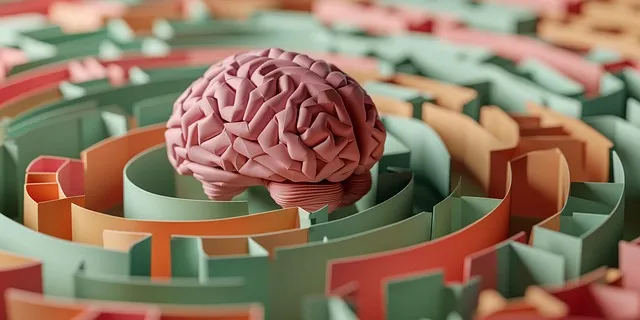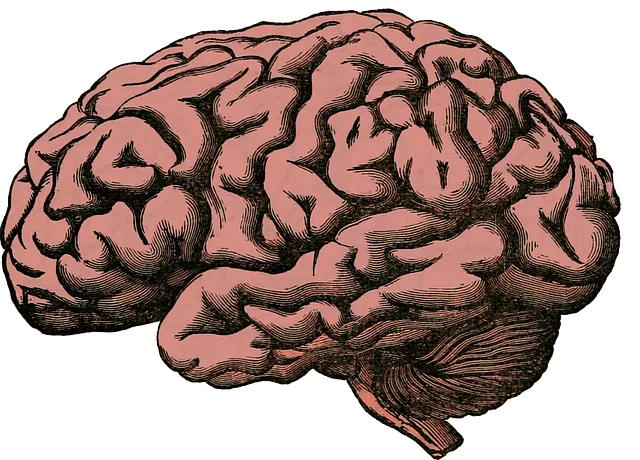The Boulder Kaiser Permanente Mental Health Center offers comprehensive programs to educate individuals about managing stress effectively, focusing on communication strategies, early intervention techniques like Depression Prevention, emotional regulation, mindfulness meditation, and cognitive behavioral therapy (CBT). They prioritize cultural competency training for healthcare providers, tailored trauma support services, and practical routines such as focused breathing and physical activity. The center highlights the effectiveness of mindfulness, relaxation, and social support, integrating these into holistic well-being practices that target both symptoms and root causes of stress.
“At Boulder Kaiser Permanente Mental Health Center, we delve into the profound impact of stress on our lives, exploring its causes and effects. Understanding stress is the first step towards managing it effectively. This article presents evidence-based techniques tailored by experts at the center to foster resilience. From mindfulness practices to practical daily routines, we uncover strategies to mitigate stress. Additionally, we emphasize the significance of social support and relaxation techniques in achieving holistic well-being, drawing insights from the center’s experience.”
- Understanding Stress: Unveiling the Impact and Causes at Boulder Kaiser Permanente Mental Health Center
- Evidence-Based Techniques for Effective Stress Management
- Practical Strategies to Incorporate into Daily Routines
- The Role of Mindfulness, Relaxation, and Social Support in Stress Mitigation
Understanding Stress: Unveiling the Impact and Causes at Boulder Kaiser Permanente Mental Health Center

At Boulder Kaiser Permanente Mental Health Center, understanding stress involves delving into its multifaceted impact and exploring its diverse causes. Stress is not merely a fleeting emotion; it’s a physiological response that can manifest in various ways, affecting both our mental and physical well-being. The center recognizes that chronic stress, left unaddressed, can lead to serious health issues, including increased risk of cardiovascular diseases, weakened immune system, and even depression.
Through its Mental Health Education Programs Design, Boulder Kaiser Permanente offers a range of resources and strategies tailored to help individuals navigate and manage stress effectively. These programs emphasize communication strategies that foster resilience, promoting open dialogue about feelings and experiences. Initiatives such as Depression Prevention aim to equip individuals with the tools to recognize early signs of distress and implement proactive coping mechanisms. By integrating these techniques into daily life, participants gain a deeper understanding of their stress triggers and develop healthier ways to respond, ultimately enhancing their overall mental health and quality of life.
Evidence-Based Techniques for Effective Stress Management

Stress management is a vital aspect of maintaining overall well-being, and Boulder Kaiser Permanente mental health center offers evidence-based techniques to help individuals cope effectively. One powerful approach is emotional regulation, which involves learning to identify and manage intense emotions before they become overwhelming. Techniques such as mindfulness meditation, deep breathing exercises, and cognitive behavioral therapy (CBT) have been extensively studied and proven to reduce stress levels and improve mental health outcomes.
The center also emphasizes the importance of cultural competency training for healthcare providers, ensuring that stress management strategies are tailored to meet diverse cultural needs. This approach recognizes that different communities may have unique perspectives on stress and its causes, requiring specialized support like trauma support services. By integrating these evidence-based practices, Boulder Kaiser Permanente equips individuals with the tools necessary to navigate life’s challenges with resilience and enhanced mental well-being.
Practical Strategies to Incorporate into Daily Routines

At the Boulder Kaiser Permanente mental health center, practical strategies for stress management are not just taught; they’re woven into the fabric of daily routines. One effective approach is mindfulness meditation, which can be incorporated seamlessly into morning or evening rituals. Starting your day with a few minutes of focused breathing helps to set a calm tone, while winding down with mindful reflection can significantly reduce pre-sleep anxiety. These practices not only promote immediate relaxation but also foster lasting mental wellness, as evidenced by the popularity of the Mental Wellness Podcast Series Production among center patrons.
Additionally, incorporating physical activity into your schedule is a powerful coping skill development tool. Whether it’s a brisk walk in nature or a session at the gym, exercise triggers the release of endorphins, our body’s natural mood elevators. This simple yet profound strategy can mitigate stress levels throughout the day, making it easier to navigate life’s challenges. The Emotional Healing Processes that occur during and after physical activity are invaluable assets in the ongoing journey towards holistic mental health.
The Role of Mindfulness, Relaxation, and Social Support in Stress Mitigation

Mindfulness, relaxation, and social support are powerful tools in stress management, as emphasized by experts at the Boulder Kaiser Permanente mental health center. These techniques foster a holistic approach to well-being, addressing not just the symptoms but also the underlying causes of stress. Mindfulness practices, such as meditation, encourage individuals to focus on the present moment, reducing anxiety and improving emotional regulation. Relaxation techniques, including deep breathing exercises and progressive muscle relaxation, help lower blood pressure and reduce the body’s physiological response to stress.
Social support, another critical component, involves building strong connections with family, friends, or support groups. Engaging in open communication, practicing active listening, and cultivating empathy enhance relationships and provide a safe space for sharing experiences. Cultural sensitivity in mental healthcare practice also plays a vital role, ensuring that these support systems are tailored to individual cultural backgrounds and beliefs. Self-care routine development for better mental health is further enhanced by incorporating social skills training, which can improve interaction dynamics and create a supportive network that facilitates stress mitigation.
Stress management is a powerful tool for improving overall well-being, and the techniques discussed here, backed by evidence from the Boulder Kaiser Permanente Mental Health Center, offer practical guidance. By understanding stress triggers and implementing mindfulness, relaxation, and social support strategies, individuals can navigate life’s challenges more effectively. Incorporating these practices into daily routines empowers folks to take control of their mental health and foster resilience in today’s fast-paced world.






